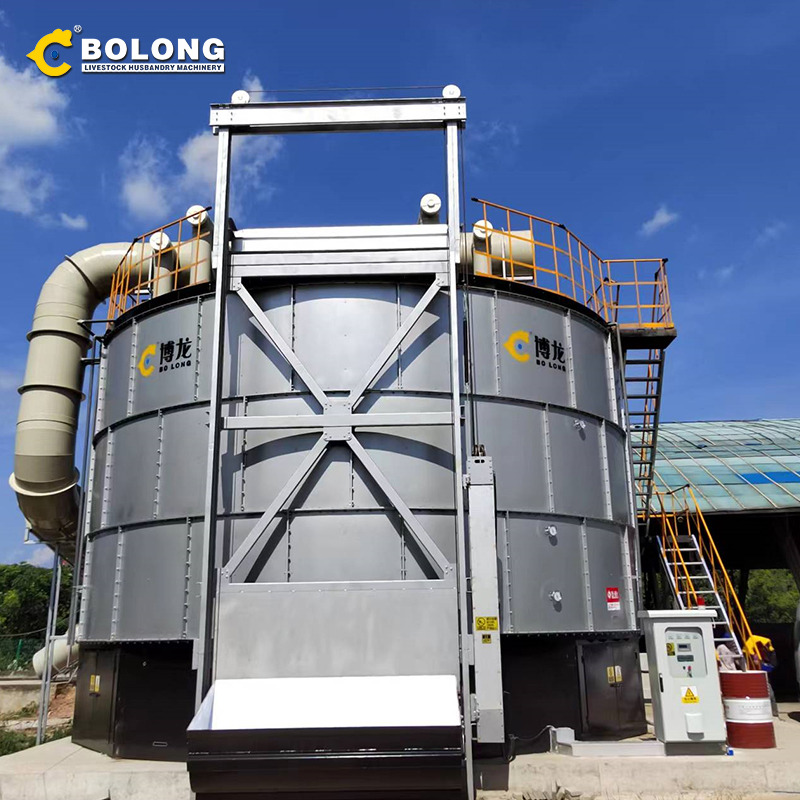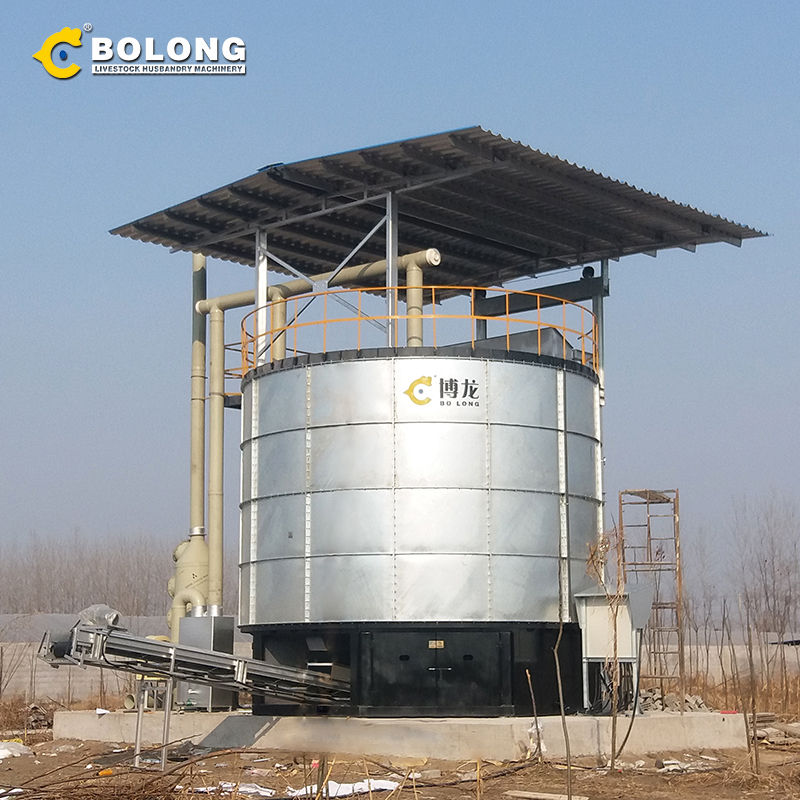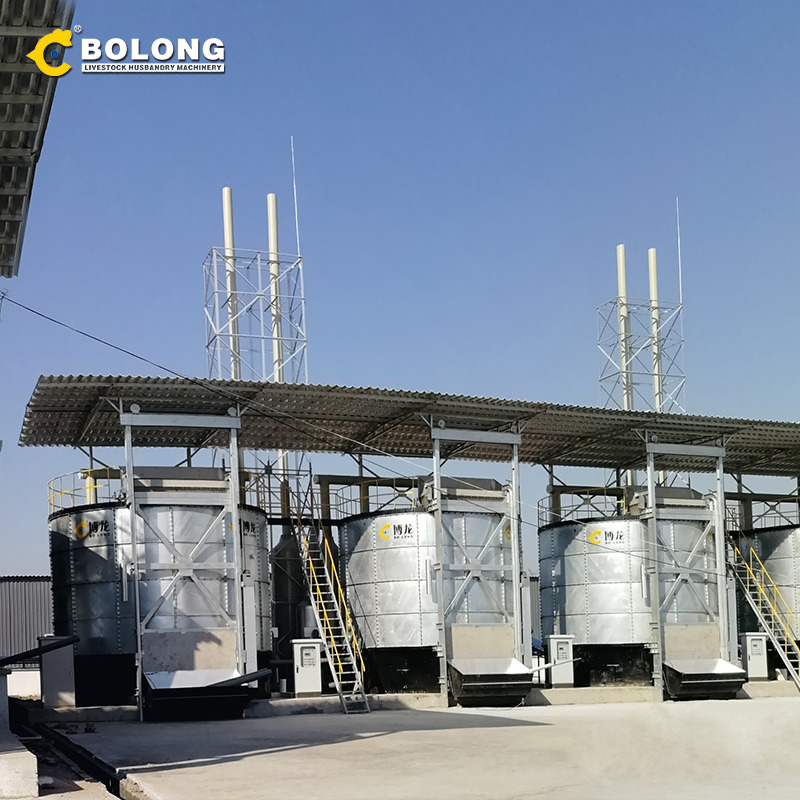With the development of modern agriculture and the enhancement of global environmental protection awareness, how to efficiently deal with agricultural waste and organic waste has become a common challenge for countries around the world. In this context, organic fertilizer composting machine has become an important technical equipment in the field of environmental protection with its unique advantages. It can not only realize the resourceful and harmless treatment of waste, but also provide high-quality organic fertilizer for agricultural production, thus promoting the development of green circular economy.
In this paper, we will discuss the function and principle of organic fertilizer composting machine, the main application in the field of environmental protection and the future direction of development in three aspects, to explore its important role in environmental protection.
Organic fertilizer composting machine is a special equipment used to deal with organic waste, through the optimization of fermentation conditions, to promote microbial decomposition and transformation of organic matter, and ultimately generate efficient, organic-rich fertilizer. The core functions of the composting machine include the following:
The interior of the composting machine provides the most suitable environment for microbial activities in organic waste through precise temperature control, ventilation and humidity regulation. This accelerates the decomposition of organic matter and dramatically reduces the time required for traditional composting.
During high-temperature fermentation, the composting machine can effectively kill pathogenic microorganisms, parasite eggs and weed seeds in the organic waste to ensure the hygiene and safety of the final product.
The product of the composting machine can be directly used as organic fertilizer to improve the soil and crop yield, realizing the efficient resource utilization of waste.
The closed structure of the composting machine can effectively control the odor and liquid leakage, reduce the pollution of the environment, and greatly improve the working environment of waste treatment.

Agricultural waste such as animal manure, straw, fruit and vegetable residues, etc., if not handled properly, will lead to serious environmental pollution problems, including eutrophication of water bodies, soil pollution and odor emissions. By fermenting these wastes, the organic fertilizer composting machine not only eliminates their negative impact on the environment, but also transforms them into fertilizers rich in organic matter.
For example, a large amount of manure discharged by the livestock and poultry industry can be converted into high-quality organic fertilizer through the fermentation tank treatment, reducing ammonia emissions and groundwater pollution, while promoting the sustainable development of agricultural production.
Urban waste, kitchen waste occupies a large proportion of the traditional landfill and incineration methods not only waste of resources, but also cause serious environmental pollution. Organic fertilizer composting machine can efficiently process kitchen waste, turn it into organic fertilizer, and realize waste reduction, resourcefulness and harmlessness.
For example, many cities have introduced special fermentation tanks for kitchen waste, where food waste from the catering industry is used for greening and agricultural planting after rapid fermentation treatment, which promotes the process of urban organic waste recycling.
The use of high-intensity chemical fertilizers in modern agriculture has led to a decline in the organic matter content of the soil and aggravated the problem of soil sloughing. Organic fertilizer produced by the organic fertilizer composting machine is rich in organic matter and trace elements, which can effectively improve the soil structure, increase soil fertility, and at the same time enhance the disease resistance of crops.
This process realizes a win-win situation for both agriculture and environmental protection: on the one hand, it reduces the use of chemical fertilizers and lowers the negative impact on the environment; on the other hand, it improves the sustainability of agriculture through resource recycling.
Agricultural waste releases a large amount of greenhouse gases such as methane and nitrous oxide during the natural accumulation process, which adversely affects climate change. The organic fertilizer composting machine, however, can significantly reduce the production of these harmful gases and lower the carbon footprint of agricultural waste treatment by controlling gas emissions during the fermentation process.
For example, biogas composting machine technology combines anaerobic fermentation with energy recovery, which reduces greenhouse gas emissions while realizing the efficient use of energy.

In the future, the organic fertilizer composting machine will develop in the direction of intelligence and automation. Through the introduction of the Internet of Things, big data and artificial intelligence technology, the composting machine can realize the classification of waste, processing process monitoring and real-time control of product quality, so as to improve efficiency and product quality.
Most of the current composting machines are designed for specific types of organic waste, and in the future, composite treatment equipment should be developed to adapt to a variety of waste to meet the needs of different scenarios. For example, combining the treatment of urban kitchen waste with agricultural waste can achieve more efficient resource utilization.
Despite the excellent performance of composting machines in the field of environmental protection, their high operating costs have constrained their promotion. One of the directions for future technological improvement is to reduce energy consumption and maintenance costs by optimizing equipment design and microbial strains, so that the composting machine can become a more cost-effective environmental protection equipment.
For small farms and family farms, the development of simple, organic fertilizer composting machines is a major trend. This type of equipment can meet the needs of small-scale waste treatment, while reducing the cost of equipment and technical thresholds to promote the popularization of composting machine technology in more regions.

Organic fertilizer composting machine as an important equipment in the field of environmental protection, is playing an increasingly important role worldwide. It can not only efficiently process various organic wastes and realize the recycling of resources, but also reduce environmental pollution and improve the agricultural ecosystem. With the continuous progress of technology, the organic fertilizer composting machine will further expand its application scope in the future, providing strong support for the realization of sustainable development and green economy.